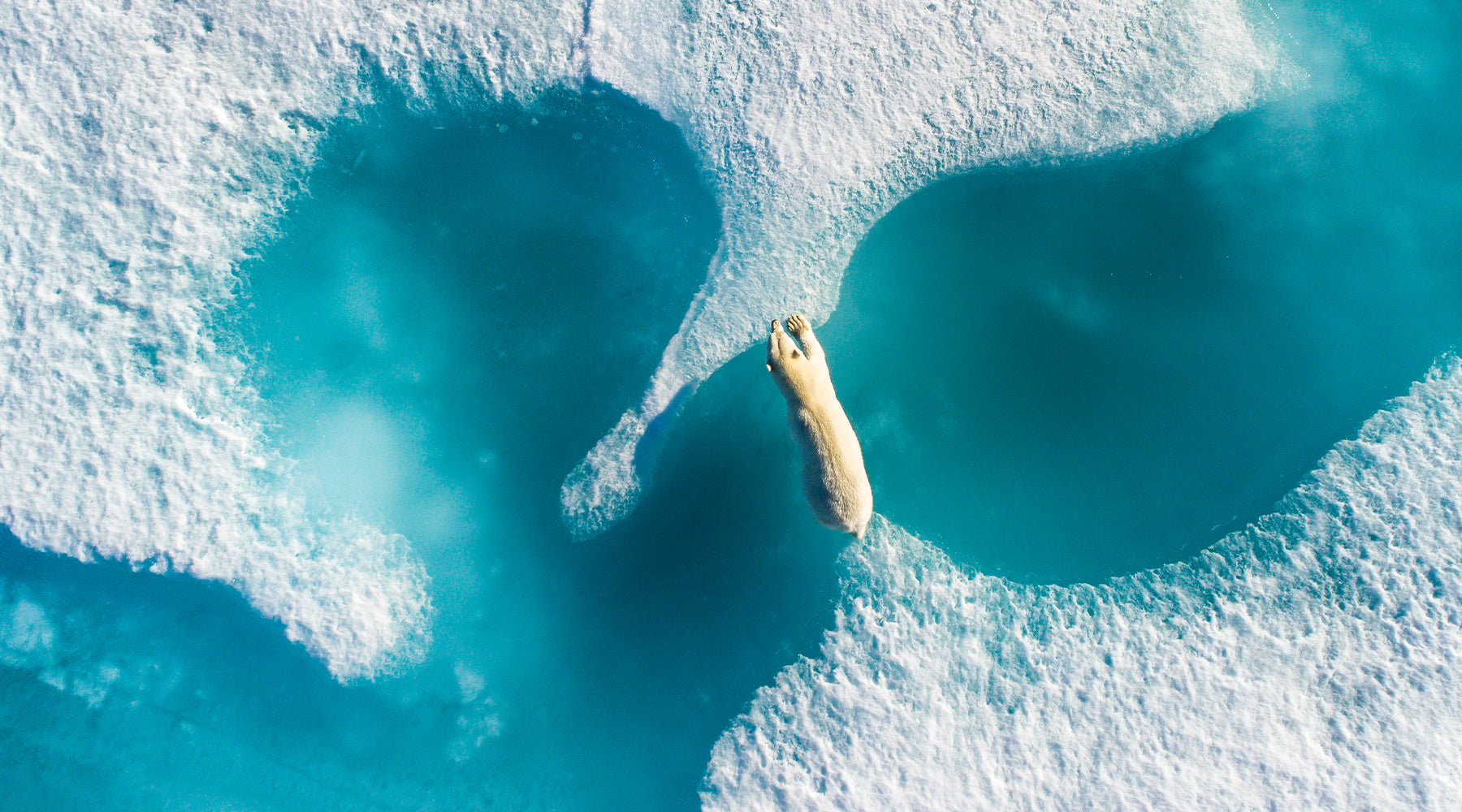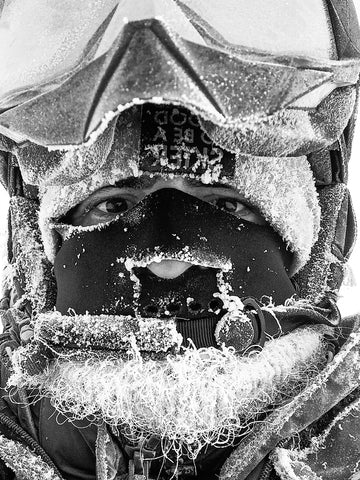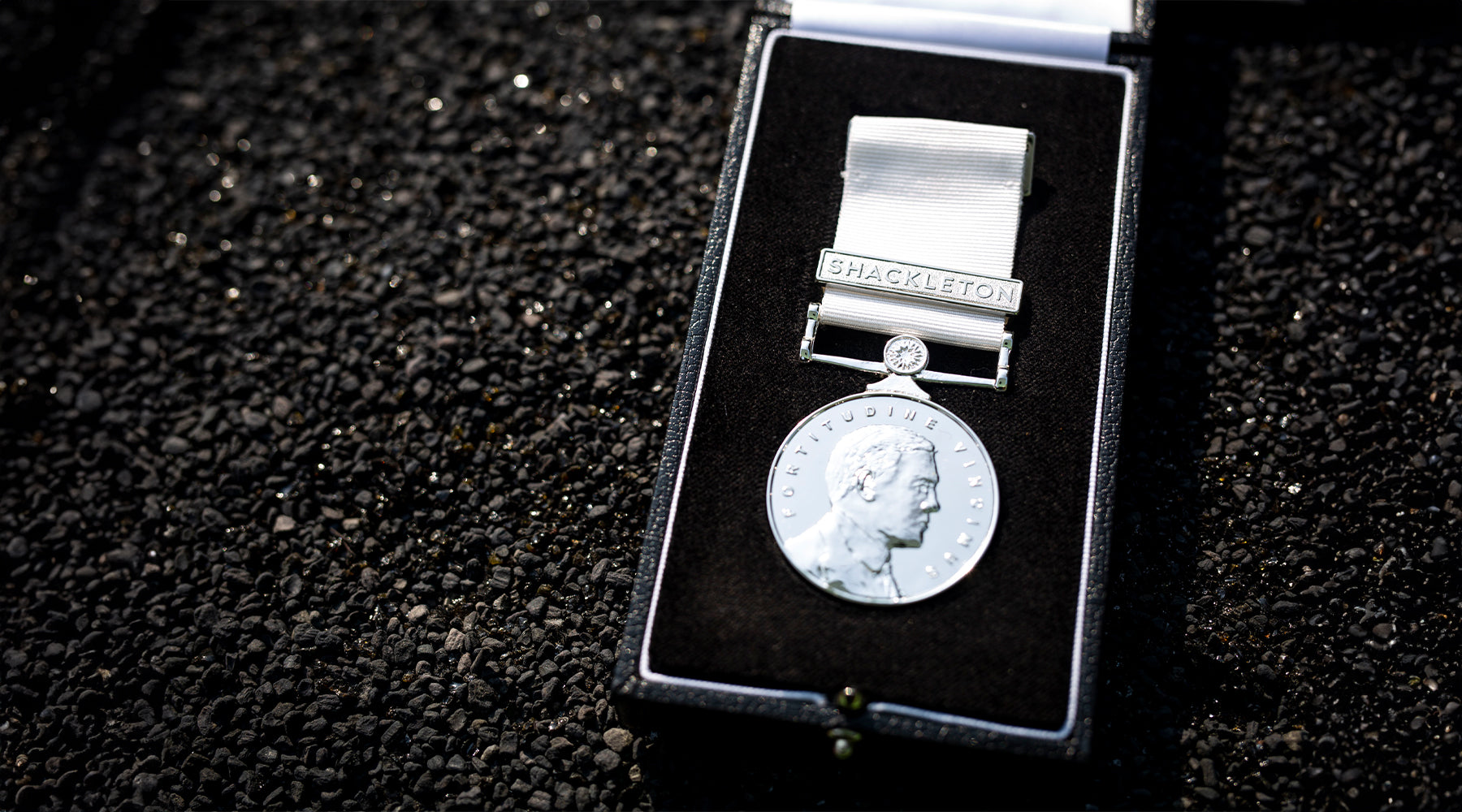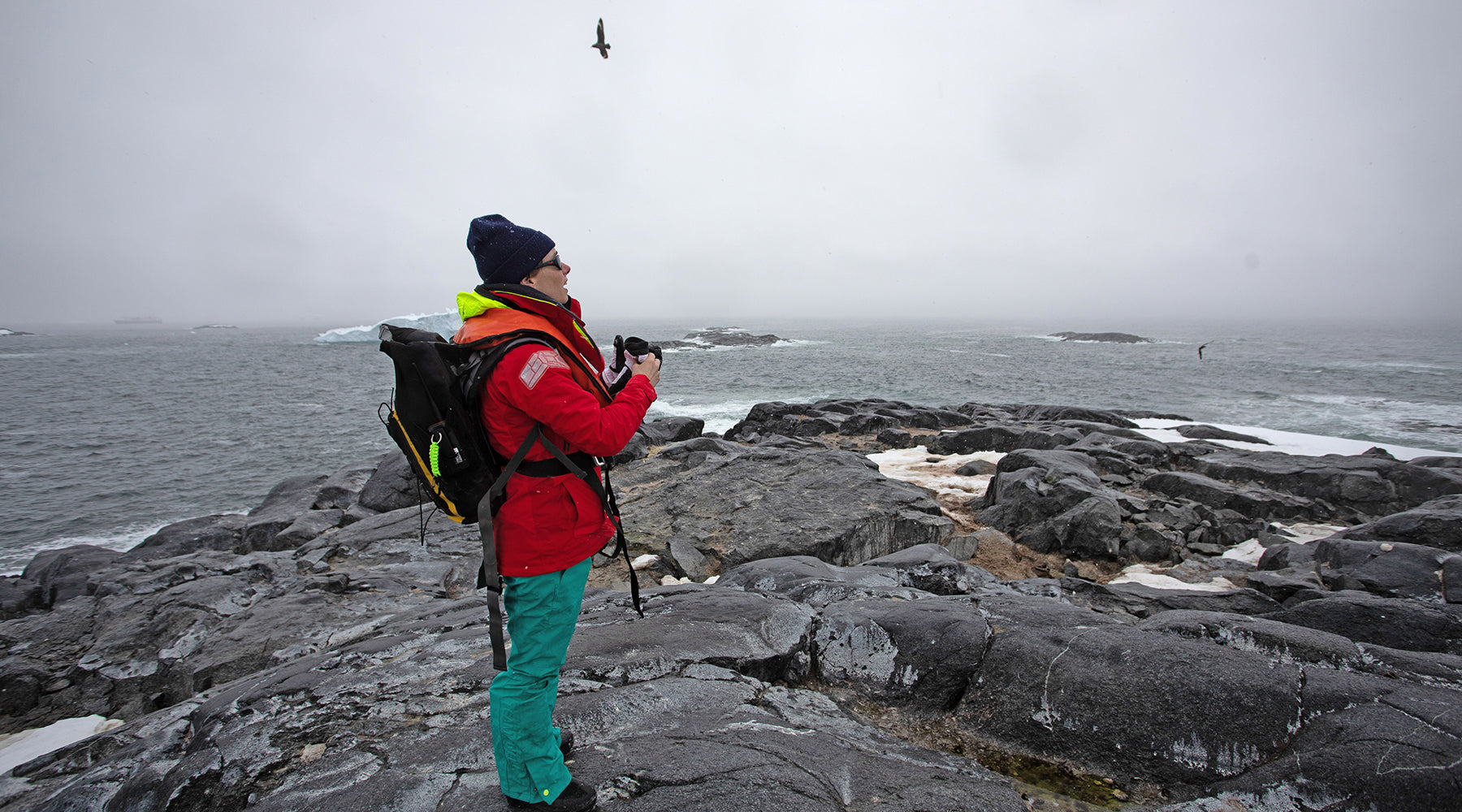
SHACKLETON MEDAL: Meet the Shortlist - Florian Ledoux
The shortlist for the Shackleton Medal for the Protection of the Polar Regions 2024 was announced on 24th April 2024, following an animated debate at the Royal Geographical Society, chaired by Sunday Times bestselling author Lewis Dartnell. In our latest journal series we meet each of the inspiring individuals from the shortlist, starting with award-winning photographer and filmmaker, Florian Ledoux, the man responsible for extraordinary images of polar bears hunting reindeer in David Attenborough’s recent BBC series, Mammals.

What was it that first captured your imagination about the polar regions?
For years, I've been drawn to the polar regions by their vastness, unending landscapes, and pristine beauty. These areas feel like the last untouched corners of the Earth, where stepping out means immersing oneself completely in solitude alongside Nature. While it's evident that human presence has impacted these regions, there remains a palpable sense of remoteness and isolation.
Despite my continued fascination with the boundless purity of these landscapes, I'm also increasingly driven by the profound connections formed during intimate encounters with nature and its inhabitants. In particular, my experiences spending consecutive winters on the sea ice have allowed me to live in close proximity to the magnificent polar bears, deepening my appreciation for their existence and the delicate balance of life in these remote realms.

What detail about your work most surprises people?
People were mainly surprised by the new angle I brought on the polar regions, a new way to understand the animals from a wider perspective in their habitat. I'm committed to delivering innovation both visually and narratively, constantly striving to present something original and captivating.
Today, it seems people are equally amazed by the sheer amount of time we dedicate to documenting, as well as the deep connections we cultivate with the animals. Intimate storytelling infused with genuine emotion possesses the profound ability to touch people's hearts and leave a lasting impression.

What technological advance has proved a real game changer?
The introduction of drones equipped with advanced cameras approximately a decade ago completely revolutionized both my work and personal life. Even within the past four years, the advancements have been monumental, enabling me to capture the breathtaking beauty of the Arctic light during winter, despite the challenging conditions of low light and extreme temperatures.

What is the toughest challenge you have faced and how did you overcome it?
Each year brings its own set of obstacles on the ice. With the climate becoming increasingly unstable, navigating the ice we rely on for winter work becomes more complex and unpredictable. The key to overcoming these challenges has consistently been adaptability and acceptance of the circumstances. In this environment, nature reigns supreme, reminding us of the importance of humility.
Last year, we encountered a severe storm on the glaciers that lasted 18 hours while traversing on snowmobiles. Wind gusts reached speeds of 30 meters per second, with wind chill temperatures plummeting to -75°C. It was undoubtedly a difficult experience, but drawing upon our collective professional expertise, we persevered until we emerged safely on the other side.

What has been the most rewarding moment for you in your work?
In the field, we've encountered numerous extraordinary moments, capturing unique events like bear hunting walruses, reindeer, or seals, as we recently did. However, some of the most fulfilling experiences come afterwards when we're able to share our work with a wide audience.
I felt immensely grateful and excited when Disney released the feature film "Polar Bear," to which I made significant contributions. Similarly, being involved in "Frozen Planet 2" by BBC felt incredibly rewarding. These opportunities allow us to not only showcase the beauty and wonders of the polar regions but also to inspire and educate audiences worldwide about the importance of conservation and preservation efforts in these pristine environments.

What message would you give to people trying to do what you do?
What we observe across various regions of the world is the remarkable resilience of Nature. Given protection, it can rebound from our missteps and adapt. However, this resilience hinges on us granting it an opportunity to do so. Human prosperity is not contingent upon a single ecosystem but relies on the interconnectedness of all ecosystems to maintain balance on our planet. Disruption in the polar regions is the starting point for the disruption of these interconnected systems everywhere else.
Presently, we find ourselves increasingly disconnected from Nature, often forgetting that humans are an integral part of it and consequently neglecting our responsibility to nurture it. Yet, the truth remains: by harming nature, we ultimately harm ourselves. It's imperative to recognise that there exists ample room for both wildlife and humans to coexist harmoniously on this planet. Nature and its inhabitants offer far more than mere resources for exploitation. They have the capacity to enrich our souls, bring within us a profound sense of belonging to something greater, and evoke deep-seated feelings of inner contentment, and stability.
Learn more about Florian Ledoux here.


